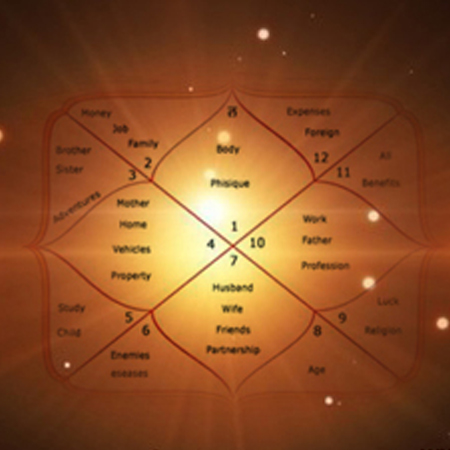Vastu Yagna: Significance, Benefits & Method
Vastu Yagna wards off bad energies from our homes & workplaces by realigning these sites with the universal energy of abundance, prosperity, happiness, & positivity. How is this Yagna performed? What is the science behind this Yagna? Read the article for answers.
Vastu Yagna is mainly conducted at home or office to remove bad energies and realign the entire geometric system of the site to resonate and bring abundance in our life. This Yagna is performed to appease ‘Vastu Purusha’, who is the universal architecture and balances the energy of earth and humankind. The technique followed in Vastu Yagna allows us to reorient our house and workplace as per the universal positive alignment to bring prosperity, abundance and happiness in our life.
This Yagna is mostly performed before moving to a new house or office, dedicated to Vastu Purusha and the Gods of direction: Indra (east), Agni (southeast), Yama (south), Pitru (southwest), Varuna (west), Vayu (northwest), Kuber (north), and Brahma (center). Each God of direction is a symbol of elements, prosperity and our karma (deed).
Vastu is a traditional Hindu system of architecture where the orientation, alignment of designs and patterns play an important role in integrating quality energy into the constructed site. Vastu Purusha is represented in the mandala or architectural form and structure. Through this diagram all the elements and high vibrational energies are captured and distributed as per the need of the place.
Why should we perform Vastu Yagna?
This Yagna is performed to appease all the specified 45 energy fields of Vastu Purusha, who resides in the building where we live and work. We spend hours under the roof of the building where we live and work; and we expect prosperity, abundance and well-being for our family members and co-workers from the building. This Yagna is performed so that the 45 energy fields resonate with your body and energy, which is crucial for you to progress in life without many obstacles and mishappenings.
Benefits of Vastu Yagna
- Creates a central space of manifestation; root of all energy in the universe.
- Aligns your thinking to get into action & produce results.
- Negates emotional imbalances & invites supportive, supervising energies.
- Creates the energy to expand property, business; to provide wealth, happiness & abundance.
- Improves immunity, offers healing & keeps illnesses at bay.
- Contributes towards shaping your future, controls all senses & concentrates them for fruitful work.
- Harmonizes everyone’s thoughts; generates good thoughts & morals among family members, business partners & co-workers.
- Creates bonding with earthly affairs & helps to have control on oneself.
- Removes delusions, chaos, unsystematic thoughts that lead to confusion & false temptations.
- Helps in removal & elimination of all negative aspects such as diseases, alcoholism, jealousy, lack of focus & confidence.
- Any ancestral problem or pitru dosha (karmic debt of forefathers), malefic influences & psychic attacks are removed as these forces do not allow one to grow in life.
- The Vastu Yagna is performed for commercial, residential & industrial purposes.
What is the method to perform Vastu Yagna?
- Vastu Purusha is a deity surrounded by celestial beings: 32 are seated on the outer limits and 13 within inner limits. This Yagna invokes all these 45 celestial beings who have different purposes in contributing wellness to our life.
- The inner deities are mostly related to health issues and longevity. The deities on the outer mandala (metaphysical square plan) are also important as the main door entry or plot will be there.
- The priest chants mantras dedicated to all 45 celestial beings of both inner and outer Vastu Mandala and, thus, activates their energy to harmonize your place.
Procedure for Vastu Yagna
- The priest draws a swastika symbol with kumkum (a powder where the primary substance is turmeric) on top of the entrance; offers curd to the door columns on both sides; takes three lemons and moves it clockwise and anticlockwise three times each and keeps them aside; breaks a coconut at the entrance.
- The master of the house or office takes Lord Ganesha’s idol in his hands and chants names of Lord Ganesha. The woman (spouse) follows the man; both of them should put their right foot forward while entering the house.
- Ganesh Puja is conducted. The remover of obstacles, Lord Ganesha, has to be invoked and placed in the southeast corner. Offer flowers by chanting Om Gan Ganapathaye Namaha. Offer incense, light diya (earthen lamp), prasad (food to Lord Ganesha).
- Place a kalash (holy jar) next to Lord Ganesh’s idol and put a cow’s idol in the southeast direction. Put rice on a plate and place the kalash on top. Fill the kalash with water, cardamom and tulsi (basil). Set a coconut on top, wrap a red cloth and thread around the neck of the coconut. Offer aarti (light in the form of a flame in a diya) to Lord Ganesha and take it to all corners of the house/office.
- The lady of the house then worships the kitchen and puts a tilak (a paste usually made of sandalwood, vermillion, ash, clay or turmeric) on the stove and water taps, boils milk in a new vessel till it spills. She then has to stick a white paper with a piece of red thread outside the main door of the house with a hand impression on it, using the tilak.
- The priest prepares a Yagna Kund with a certain geometric shape and starts performing the Vastu Yagna by invoking the God of fire and the Gods of each direction.
- The priest does shuddhi (purification) of all Gods by chanting vedic mantras.
- At the end, offer food as prasad of your choice and have a feast at your place. You can also give donations.
Science behind Vastu
Everything that is functional in the universe has to be geometrically in sync, otherwise it will cause disturbance. For instance, the shapes and forms of human beings have a certain impact because we are also a physical form. So does a building – it has a form and structure. If you look at the physical world, at planets, each and every thing has a shape and form. The whole universe has a geometric shape for as long as something stands and functions. The way we walk, run and carry our posture is aligned with a larger cosmic geometry so that we can function with the least amount of friction.
Similarly, the geometry of a building makes a difference. But when you are a little sensitive, it makes a huge difference. Some people might not be aware about the energy but can understand the consequences - you will feel good or not good about a place. But you might not know the reason why you don’t feel good about it. The shapes and forms around you have a certain impact because you are also a certain physical form and this creates a geometric impact. For instance, you may look at some beautiful Indian temples and marvel at how geometrically perfect they seem. And when you go there, you do feel some kind of positivity. Even if you don’t believe in energy or if you are not aware about it, yet you can feel the space around you and how it makes you feel.
Our homes and offices have the power to make us feel a certain way. They should be built to make us feel good because the habitat is the most important factor to thrive in. If you just want to live and die for the sake of living, you can live anywhere. But if you want to thrive really then it’s important how and in what kind of spaces you live. There is a whole science to this. Going back to the example of a temple, the space is built with such care that you want to sit there for some time.
Significance of 45 Energy Fields in a Building

Hinduism believes in ‘Pindeshu Brahmande’, which translates as ‘whatever is found in the universe is found in the body.’ The physical processes of the universe are parallel to the biological process in the human body. They are also parallel to the physical processes of our buildings. There are 45 energy fields which are governed by 45 Gods (Devatas), and we align these energy fields in each building by conducting the Vastu Yagna. These energy fields emerge with human consciousness; they blend and influence our life. The presence of these Devatas is felt at the specific place of any building, where this Yagna is conducted by constructing a grid, which has been termed as Vastu Purusha Mandala.
| Brahma - the supreme creator (center) |
Bhudhar - the power of manifestation (north)
|
Aryama - supports growth & connects to the material world. Helps to get a companion (east)
|
Vivaswan - controls change & moves the manifestation process (south)
|
Mitra - the motivator (west)
|
|
Apaha - the healer, strengthens immunity & grants long life (NNE [N7], NE [N8])
|
Apavatsa - carries power of medicine from intuitive body to mind body (NE [E1], ENE [E2])
|
Savita - bestows the power of meditation, provides money & support (ESE [E7], SE [E8])
|
Savitra - grants the power for luxuries, strength & nourishment (SE [S1], SSE [S2])
|
Indra - primary Devata to safeguard money, childbirth, longevity; ruler of 5 senses (SSW [S7], SW [S8])
|
|
Jaya - keeps all books /tools related to one’s performance of skills.
|
Rudra - generates tears to detoxify the body and emotions.; the channelizer. (WNW [W7], NW [W8])
|
Rajyakshma - the holder; it stills the mind (NW [N1], NNW[N2])
|
Aditi - the peace maker; protects against fear of unknown (NNE [N7])
|
Diti - the visionary; gives clarity of mind (NE [N8])
|
|
Shikhi - source of all powerful thoughts & ideas (NE [E1])
|
Parjanya - the insights granter; grants fertility (ENE [E2])
|
Bhrisha - the gravity; power of bringing out new thing (ESE [E7])
|
Aakash - the inner space (SE [E8])
|
Anil - the uplifter (SE [S1])
|
|
Pusha - the strengthener, nourisher & promoter (SSE [S2])
|
Bhringraj - the discriminator, it’s the element of being genius (SSW [S7])
|
Mriga - the initiator of curiosity (SW [S8])
|
Pitra - the ancestors (SW [W1])
|
Dauwarik - the doorkeeper, has infinite knowledge, helps in deciding the subject, bestows power of discrimination (WSW [W2])
|
|
Shosha - the dryer, dries up unwanted emotions (WNW [W7])
|
Papyakshma - the addictor, gives disease, drinking habits, etc. (NW [W8])
|
Roga - the weakener, weakens the strength but also acts as a supporter (NW [N1])
|
Naga - the craving, power of granting emotional enjoyments (NNW [N2])
|
Jayant - the success maker (ENE [E3])
|
|
Mahendra - the administer, develops power of association amongst people (East [E4])
|
Surya - the controller; gives farsightedness & power to observe (East [E5])
|
Satya - the creator of goodwill (ESE [E6])
|
Vitatha - the pretender, relates to the unreal world (SSE [S3])
|
Gruhakshata - the definer; defines the boundary of your mind (South [S4])
|
|
Yama - the maintainer / the order, the God of death (South [S5])
|
Gandharva - the preserver, preserves the nector & manifests all kinds of creativity (SSW [S6])
|
Sugreeva - the receiver of beauty & knowledge (Wsw [w3])
|
Pushpadant - assistant, vehicle of Lord Kuber whose attributes are blooming & expanding
|
Varun - the observer & controller of the world (West [W5])
|
|
Asur - the illusionist who has mystic powers (WNW [W6])
|
Mukhya - the caretaker, head of all energies which manifest the power of the building (NNW [N3])
|
Bhallat - the power of abundance (North [N4])
|
Soma - the treasure, seat of Lord Kuber, gives profits in business & safeguards from enemies (North [N5])
|
Bhujanga - the immunity; preserves; life-saving medicines. (NNE [N6])
|











 World Veterinary Day: Which pets suit your Zodiac Sign?
World Veterinary Day: Which pets suit your Zodiac Sign?
 What form of entertainment does your Zodiac sign prefer?
What form of entertainment does your Zodiac sign prefer?
 Scorpio - What does your Destiny hold for you?
Scorpio - What does your Destiny hold for you?
 The Phases of the Moon and Your Sex Life
The Phases of the Moon and Your Sex Life
 Astrological Significance of Feeding Stray Birds & Animals
Astrological Significance of Feeding Stray Birds & Animals
